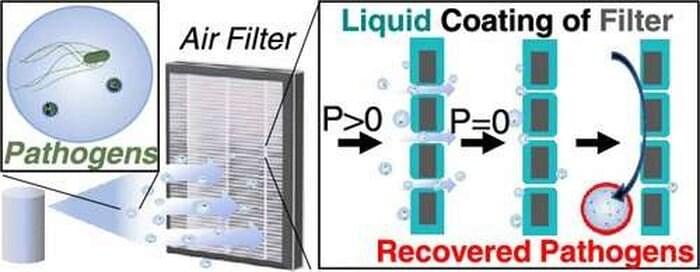Researchers from the University of Maine and University of Massachusetts Amherst have designed new liquid-coated air filters that allow for improved early detection and analysis of airborne bacteria and viruses, including the one that causes COVID-19. The team has published their findings in the journal ACS Applied Materials & Interfaces.
While conventional air filters help control the spread of disease in public spaces like hospitals and travel hubs, they struggle to keep the pathogens they capture viable for testing. The inefficiency can inhibit scientists’ ability to identify biological threats early on, which could hinder any response and protection measures.
The research team, led by Caitlin Howell, a UMaine associate professor of biomedical engineering, developed a composite membrane with a liquid layer for filters that is better suited for capturing viable bacterial and viral samples for analysis. They modeled the membrane after the Nepenthes pitcher plant, which has a slippery rim and inner walls that cause insects to fall and become trapped within its digestive fluid. By keeping the bacteria and viruses they capture feasible for examination, researchers say their novel liquid-coated air filters can enhance air sampling efforts, early pathogen detection and biosurveillance for national security.
